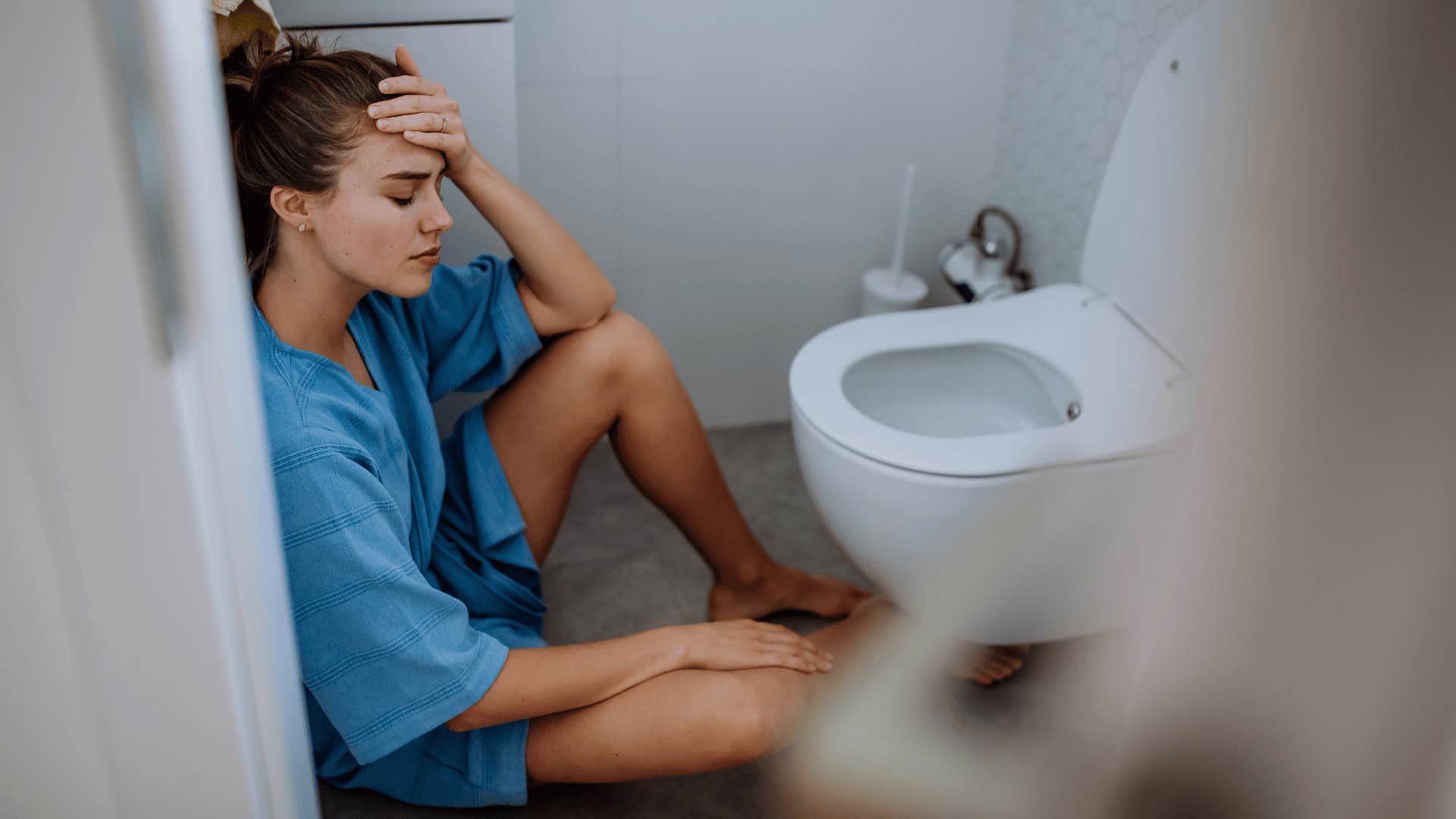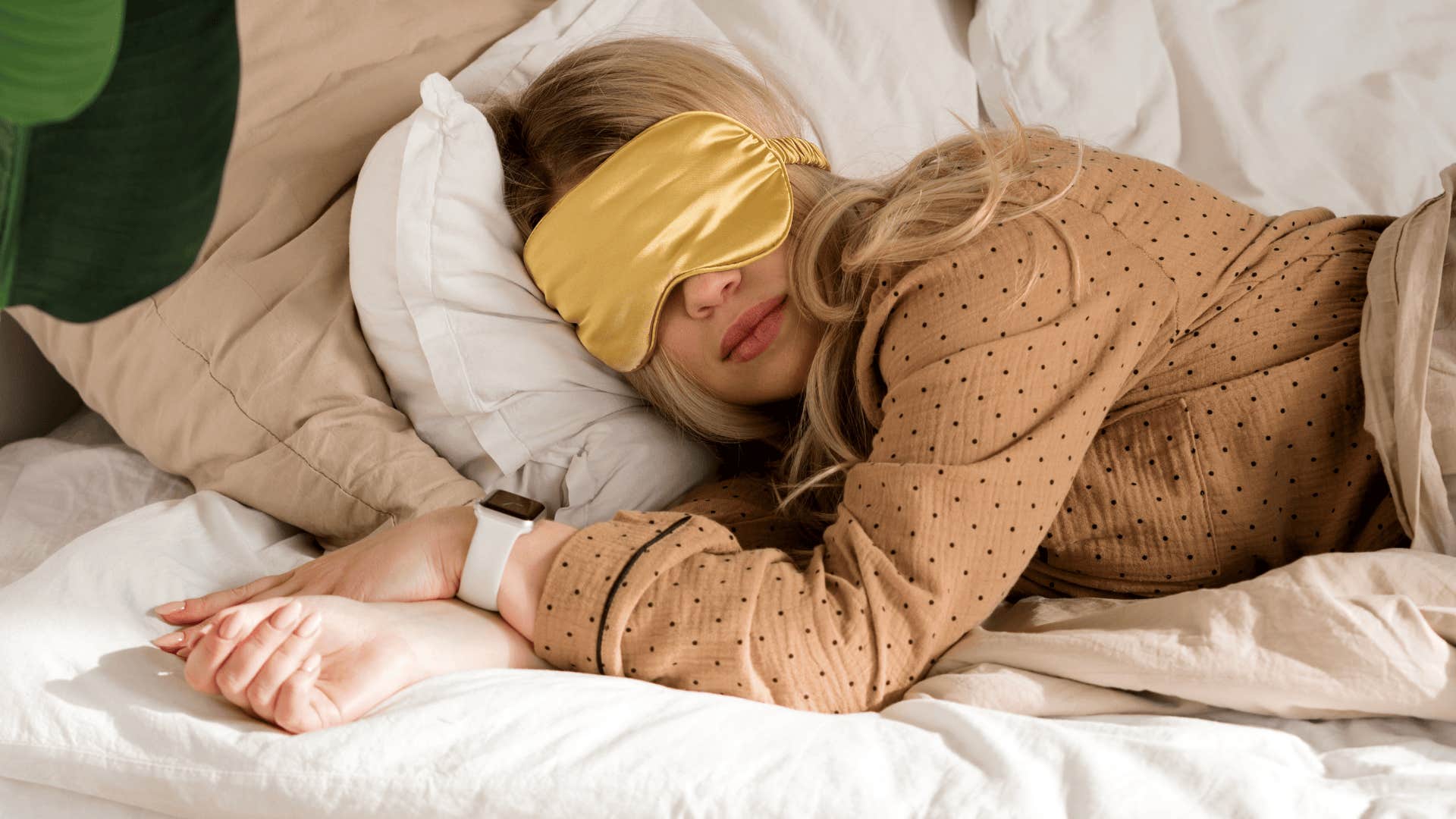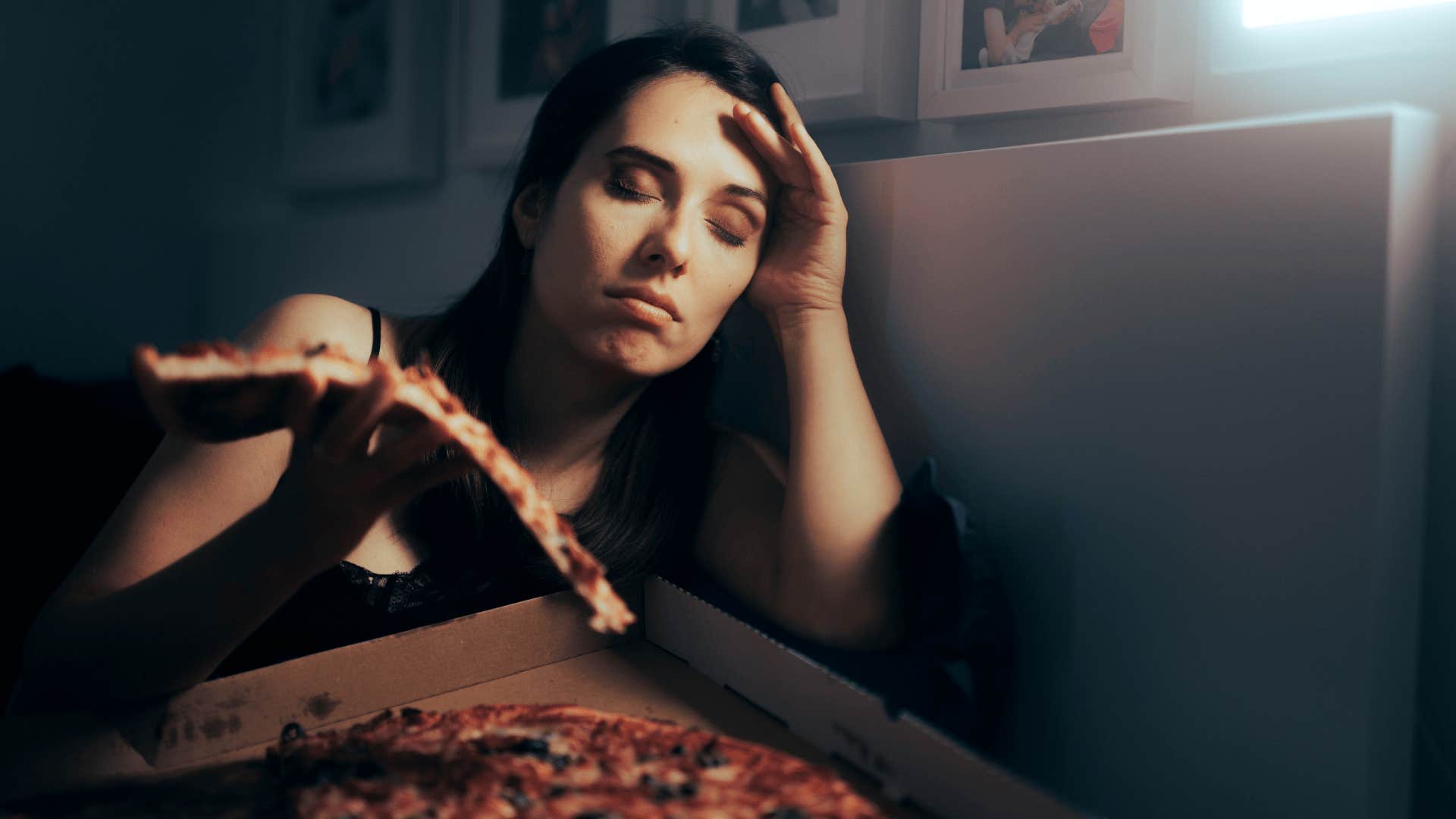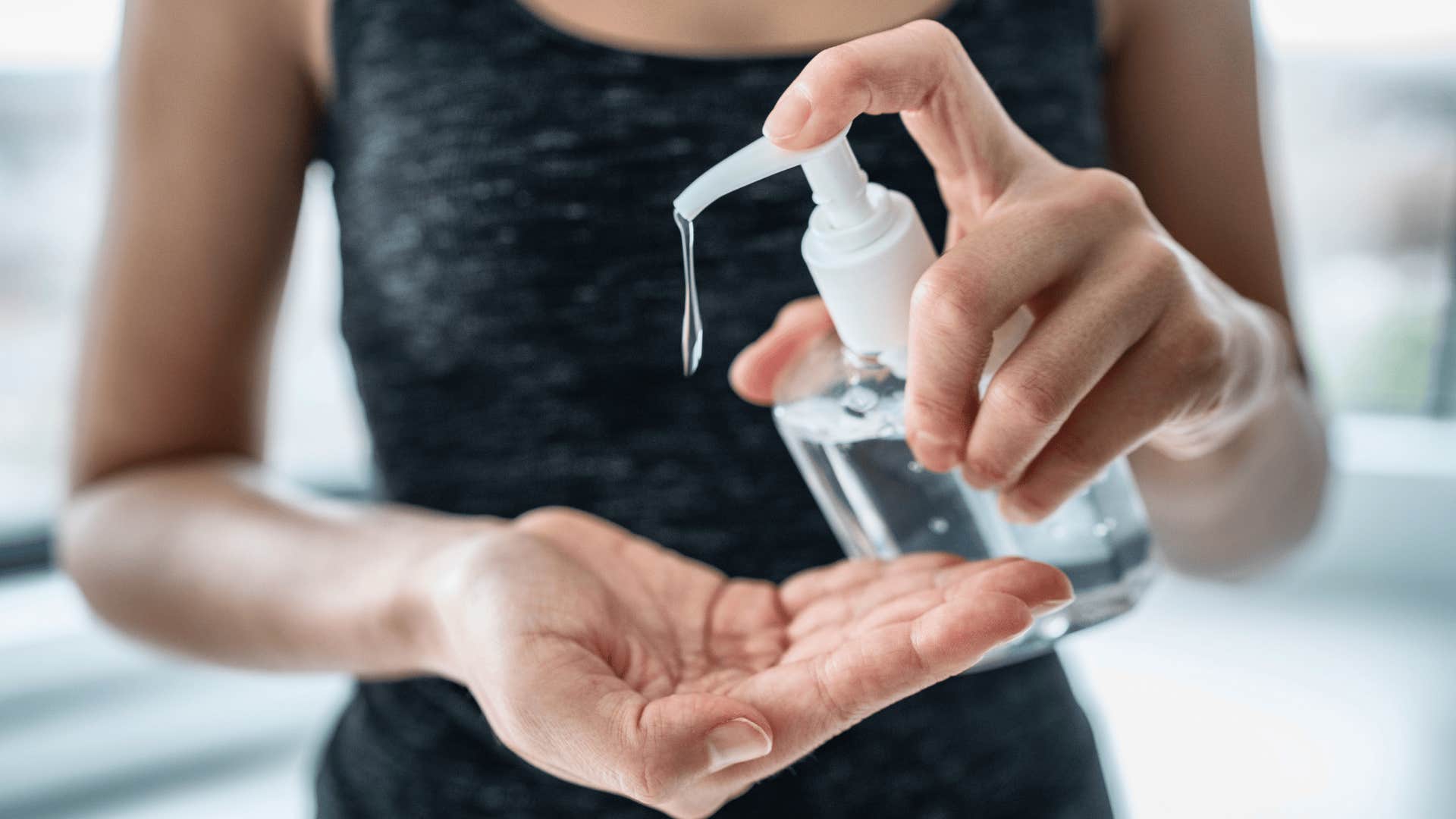7 Widely Endorsed Health 'Rules' That Do Way More Harm Than Good, According To Research
Turns out your healthy habits may not be as effective as you think.
 ciricvelibor | Canva
ciricvelibor | Canva Maybe your mom repeated them to you, or you picked them up from friends at summer camp. Perhaps even a well-intentioned but out-of-the-loop doctor drilled them into your head.
However you heard them, health myths aren't doing you any good. Find out why it’s time to give them the heave-ho—and the simple moves you should be making instead.
Here are widely endorsed health rules that do way more harm than good:
1. 'You should drink eight glasses of water a day'
 Krakenimages.com | Shutterstock
Krakenimages.com | Shutterstock
Loading up on plenty of H20 helps stave off colds, makes you feel full, and keeps your energy running high. But the eight glasses dogma? It’s misleading.
“Getting enough water isn't just about drinking glasses of it but includes all the water in foods and drinks,” says Los Angeles-based nutritionist Maggie Moon, R.D., “Also, it’s impossible to say how much water will keep someone healthy. Water needs are not just about metabolism; they change based on environmental conditions and physical activity.”
Ditch the one-size-fits-all rule and use your thirst as a guide for when to hit the water cooler or consume water-rich foods like fruit and salad.
2. 'You'll get sick if you don't dry your hair before going. outside'
 Maksym Fesenko | Shutterstock
Maksym Fesenko | Shutterstock
Leaving the house with damp strands on a chilly day might make you shiver — but it won't get you sick, as older generations of moms used to think.
“The only way to catch a cold or the flu is to come into contact with the viruses that cause them,” says Holly Phillips, M.D., women’s health physician and author of The Exhaustion Breakthrough.
Research shows that cold and flu viruses thrive in cold weather. Dry winter air may dehydrate the nose's mucus membranes, which helps viruses invade the system. However, not finishing your blow-dry before heading out the door won’t make you more likely to contract them in the first place.
3. 'You should poop once a day'
 Halfpoint | Shutterstock
Halfpoint | Shutterstock
Going number two, anywhere from three times a day to three times a week, meets the range of what’s considered regular.
“How often you poop comes down to your diet habits: how much fluid, fiber, and overall food you take in,” says Phillips. “Most people go once a day, but some people who are perfectly healthy go more often or less.”
Be concerned with your poop habits only if you’re suddenly going a lot more or less, your bowel movements are accompanied by pain or blood, or the consistency is much looser or a lot harder than usual.
4. 'You need 8 hours of sleep a night'
 Vagengeim | Shutterstock
Vagengeim | Shutterstock
Like the eight-glasses-of-water rule, this super-specific edict doesn’t always work for everyone. The National Sleep Foundation recommends that adults score seven to nine hours of sleep each night to function mentally and physically at the top of their game mentally and physically the next day, says Phillips.
But that leaves plenty of leeway for individual sleep needs. Some people swear they can function fine for five or six hours per night, while others only feel rested with nine or so hours of snooze time.
5. 'You need to detox your body regularly'
 ViDI Studio | Shutterstock
ViDI Studio | Shutterstock
This is true in a sense, which is why your system already has a built-in detoxifier, your liver.
Products like shakes and juices marketed for “detoxing” might be harmless, or they may deprive the body of essential nutrition because they replace actual healthy food your system thrives on, says Moon.
“The best thing you can do to ‘detox’ is to let the body do what it’s built to do and not get in the way by overeating, drinking, smoking, or consuming too much red meat, refined grains, added sugar, and saturated fat.”
6. 'You should avoid carbs'
 Nicoleta Ionescu | Shutterstock
Nicoleta Ionescu | Shutterstock
Bread, potatoes, and other grain products have an unearned rep for making people gain weight, while protein and good fats are basking in a health halo these days. But repeat after us: Carbs are not the enemy.
“Carbohydrates don’t make you fat — eating too many of them does,” says Moon. “Humans are omnivores, so while there’s more than one way to meet your nutritional needs, it’s worth noting that some of the healthiest eating patterns around, like the Mediterranean diet, prominently feature plenty of carbs in the form of whole grains, fruits, and vegetables.”
The trick is to choose the right types of food, such as whole grains or complex carbohydrates found in whole plants, rather than sodas, cookies, and other foods made with refined grains and added sugars.
7. 'You need antibacterial soaps and sanitizers'
 Maridav | Shutterstock
Maridav | Shutterstock
Do you know that plastic sanitizer container on your desk — the one you’re constantly spritzing on your hands? As promising a germ fighter as it sounds, it won’t protect you from infectious bugs any better than good old-fashioned bar soap.
A 2015 study published in the Journal of Antimicrobial Chemotherapy pitted regular and antibacterial soaps against 20 strains of bacteria. The result: Investigators reported no significant difference between the two.
It’s not the first study to suggest antibacterial might be baloney, but it’s one of the most thorough to date.
Esther Crain is an author, digital editor, and content strategist. Her work appears in multiple publications, including Women's Health, Self, Shape, Glamour, WebMD, and more.

